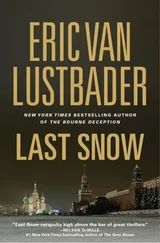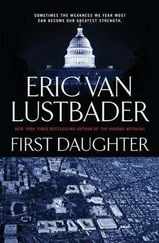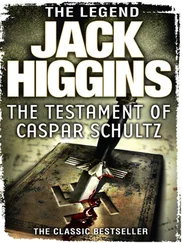"I've waited a long time for this," Dexter Shaw said. "I never for a moment doubted it would come."
He looked older to Bravo, his beard whitened, longer, the lines on his faced etched more deeply, but then again Bravo himself was a child of eight or nine. Father and son sat on the porch of a shingled house-a place, it seemed to Bravo, that only existed in his dreams. It was late autumn, because the light, vivid and clear, filtered through a mare's nest of bare branches on the perfectly symmetrical beeches. But curiously, he felt no chill. They might have been inside for all the air that stirred. And beyond the trees there was a haze that obscured everything, so that it was impossible for him to tell if there might be houses or fields, brooks or mountains, or even if there were clouds in the sky.
"I killed a man, Dad. I had no other choice."
"Then why blame yourself?" Dexter Shaw said.
"A life is still a life."
"Do you think that, or do you think you should be thinking it?"
"Does it matter?"
"Very much. Haven't I taught you not to fool yourself? You're in a war, Bravo, that's what the Voire Dei is all about-it has been from the beginning. In war there are casualties and there are victors, there's no room for doubt, and believe me when I tell you that semantics breeds doubt. In order to prevail you must cast out all doubt."
Bravo looked bleakly at the figure next to him. My father is dead, he told himself. What am I doing here in this strange place having a conversation with him? He was about to ask his father this question when Dexter Shaw spoke.
"You're one of us now, Bravo, as it was meant to be from the moment of your conception. Your mother knew this, of course, and it terrified her. To be honest, it drove a wedge between us that I was never able to dislodge. She never wanted you to be a part of the Order. 'It's only your belief, Dex,' she'd say, 'only your stupid, stubborn belief. If you love me, you'll promise to keep our baby safe.' No matter what I said, I couldn't make her understand that it wasn't a matter of what she wanted or even of what I wanted. She never forgave me for that, not even at the end."
"You were only doing what you needed to do, Dad," Bravo said. "She had to have known that. And, in your own way, you were doing what you could to keep me safe. I need every bit of the training you forced on me. I wish I'd understood that sooner."
Dexter Shaw sighed. "So do I, Bravo, but there was no way to tell you before now. I don't mean to say that I haven't made mistakes in my life-I have regrets, plenty of them, but I have faith. In you I know I'll find my redemption…"
Head bowed, hunched over, Bravo shivered with the last echo of his father's voice. It was just as well that he was sitting, because he might otherwise have collapsed onto the floor.
"The weakness and vertigo will pass quickly," Jenny said, speaking of the cupping.
As she was putting away her paraphernalia, he said, "Will you tell me now why my father had you make the glasses?" Already, he was feeling better now, his head remarkably clear, as if he had fallen deeply asleep for a half hour.
She returned to her seat beside him. "The glasses are important for one thing only: what is etched into the right lens." She plucked them off the table as if they were crown jewels. "It's also why we had to risk coming here."
Without another word, she rose, and he followed her across the basement to a plywood door he hadn't noticed before. She pulled it open and he found himself in a small, cramped laboratory filled with equipment he could only guess at.
"This is where you ground the lenses?"
She nodded, seating herself at a backless stool. "No optician's office would have the machinery needed." She pulled over a goosenecked lamp, turned it on. Brilliant light flooded the worktable. She put her hand on a squat metal machine that looked to him like nothing more than a deli meat slicer. "This is a very special grinder; I designed it myself."
"What I don't understand," Bravo said, "is that if you ground the lenses why can't you simply tell me what's on them?"
Jenny gave him a sly smile. "I may have ground the lenses, but I didn't etch them. Your father did."
"He was here? He did it himself?"
"After a little practice, yes. He was an astonishingly quick learner."
"Yes, that was one of his extraordinary abilities." Bravo thought of the porch behind the shingled house in a never-never dreamland.
"After he etched the lenses, I sealed them with a specially formulated coating."
"So the etching would appear only under certain conditions."
"That's right."
Jenny turned off the goosenecked lamp, twisted it so that it was pointed at a bare wall, then snapped on another switch. An oval of eerie greenish illumination was cast on the wall.
"Here goes," she said, taking the glasses and placing the right lens between the light and the wall.
Nothing.
She moved the glasses slightly so that the right lens was in the greenish glow. Immediately, a set of numbers appeared within the oval of illumination.
"Magic!" Jenny said with a small laugh. She turned to look at Bravo, who was scrutinizing the numbers.
"Do you know what they represent?" she said.
He frowned in concentration. "To be honest, the groupings look vaguely familiar, though I can't say why."
"A mathematical formula, maybe."
"Yes, that would make sense." He grabbed a pad and pen from Jenny's workspace, jotted down the series of numbers and spaces precisely as it was projected. "The fact is, though, mathematical formulae are difficult to decipher. Right now I think you'll agree that we don't have time to work on it. Unless there's another reason for us to remain here, I think we should leave as quickly as possible."
"I agree." Switching off the lamp, Jenny handed the glasses to Bravo and stood up.
They went back up into the dark house. Light from the winding street and the neighboring houses came through the window in a haloed glow.
Careful to stand well back, Jenny peered out at the street. She was so still he could barely see the rise and fall of her breast.
"What are we waiting for?" he said, but she immediately raised a warning hand to silence him.
After a moment, she moved further back into the shadows of the room, taking him with her.
"We can't leave," she whispered, "at least not as we are."
"Donatella?"
"The delivery truck across the street."
"What about it?" he said.
"If it was here on legitimate business its lights would be on, wouldn't they?"
He stared out at the darkened van. Was someone-Donatella-in there, clandestinely watching them? The thought sent an unpleasant chill down his spine.
"That's a hell of an assumption to make."
"I saw that same truck when we were on our way to the cemetery."
Bravo let out a long breath. "What do we do?" he said. "We can't stay here."
"No we can't. And as you've pointed out, the quicker we make our exit, the better. Our only chance is to change our appearance." She turned her back to him, as he had done with her, and said, "I need your help."
She instructed him on how to braid her hair and pin it up onto her head. The hair cascading down her back was thick, heavy and lustrous. When he first took hold of it, the sensation was new to him, clear and direct without prior associations. What she was asking him to do was basic, so simple she could have done it herself. But for him it was intimate and erotic, so that when he was done, he was reluctant to let go. He wondered, fleetingly, whether her request had been a deliberate attempt at reconciliation-or a stab at binding him to her.
They went back to the door to the garage. In the mudroom, she grabbed one of the baseball caps, set it firmly on her head, pulled on one of her father's windbreakers, gave Bravo an argyle cardigan to wear.
Читать дальше











